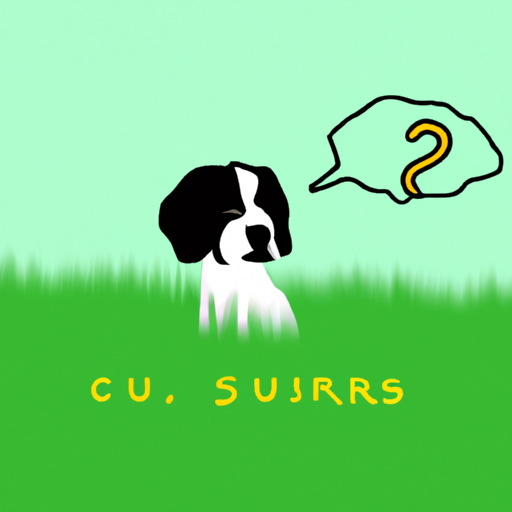Understanding Your Dog’s Behaviour
First and foremost, you need to understand that your furry friend’s behaviour may seem odd to you, but it’s perfectly normal for them. Dogs are scavengers by nature and have an innate curiosity to explore their environment. This includes everything from sniffing out new scents to tasting unusual substances. So, when your dog starts munching on the fresh, green grass, it’s not necessarily a cause for concern. However, it’s still important for you, as a caregiver, to understand the possible reasons behind this behaviour.
Possible Reasons Why Dogs Chew on Grass
There are several theories as to why dogs might chew on grass:
-
Nutritional Needs: Dogs may chew grass to fulfill certain nutritional requirements. Grass contains fiber and other nutrients that your dog might crave, particularly if they are on a strict meat diet.
-
Indigestion: If your dog is feeling unwell or has an upset stomach, they might eat grass as a natural remedy. This is because grass can induce vomiting, allowing them to get rid of whatever is causing their discomfort.
-
Boredom: Just like humans, dogs can get bored too. Chewing on grass can be a form of entertainment for them.
-
Behavioural Habit: Sometimes, dogs might eat grass simply because they’ve developed a habit or they enjoy the taste and texture.
How to Respond
As a caregiver, it’s critical to respond appropriately to your dog’s grass-chewing habit. Here’s what you can do:
-
Monitor their behaviour: Keep an eye on how often your dog is eating grass and whether there are any adverse effects, such as vomiting or diarrhea.
-
Check their diet: If your dog is frequently eating grass, they might be lacking certain nutrients. Consult with your vet and consider revising their diet.
-
Provide enrichment: If boredom is the cause, provide more toys, exercise, and interaction to keep your dog stimulated.
When to Seek Veterinary Care
While grass-chewing is typically harmless, there are certain signs you should look out for:
-
Excessive vomiting or diarrhea: If your dog is vomiting or having diarrhea after eating grass, it’s time to visit the vet.
-
Persistent grass eating: If your dog continues to eat grass despite dietary changes and increased stimulation, it may indicate a more serious health issue.
| Warning Signs | Actions |
|---|---|
| Vomiting | Seek veterinary care |
| Diarrhea | Seek veterinary care |
| Persistent grass eating | Consult with your vet |
Frequently Asked Questions (FAQ)
1. Is it harmful for my dog to eat grass?
Not usually. However, if it’s causing vomiting or diarrhea, or if the grass is treated with pesticides or fertilizers, it could be harmful.
2. Can I stop my dog from eating grass?
It’s difficult to completely prevent this natural behavior, but you can reduce it by addressing the potential causes mentioned above.
3. Should I take my dog to the vet if they eat grass?
Only if they’re showing signs of illness, such as vomiting, diarrhea, or persistent grass eating despite making changes at home.
Remember, every dog is unique. While this guide provides some general insights, it’s always best to consult with your vet if you have any concerns about your pet’s behavior.



